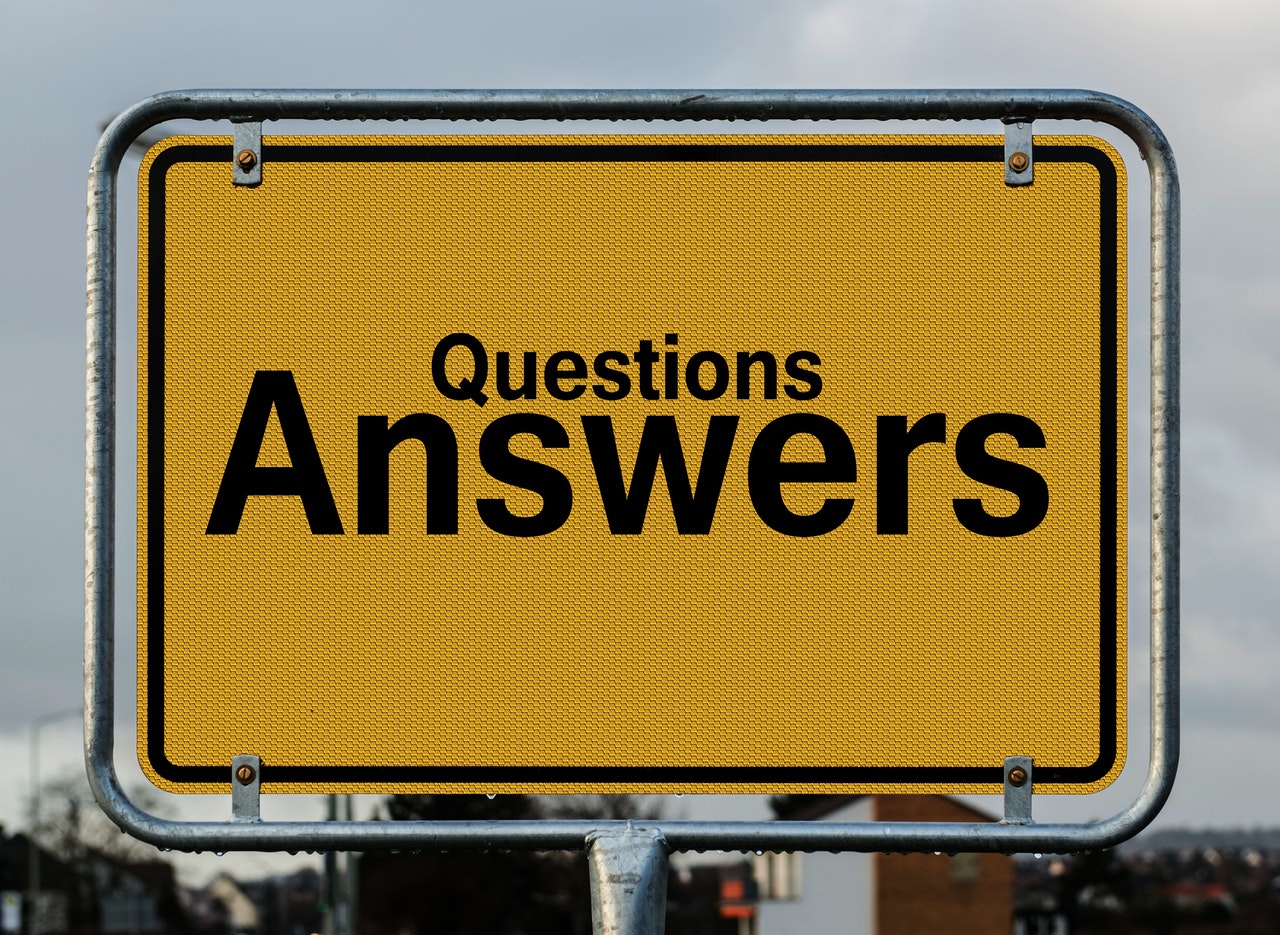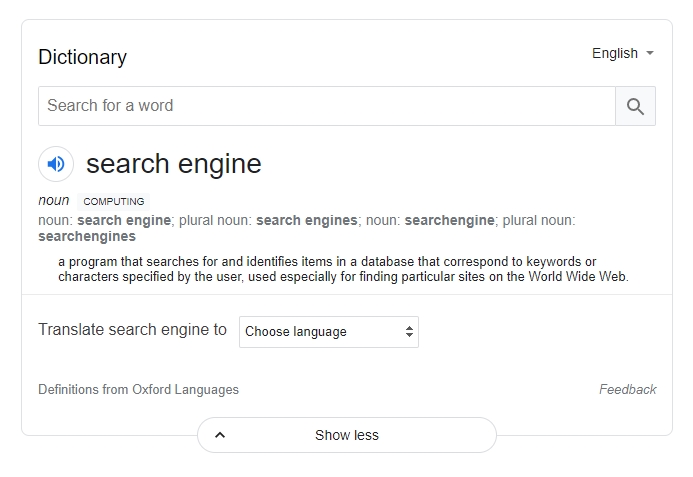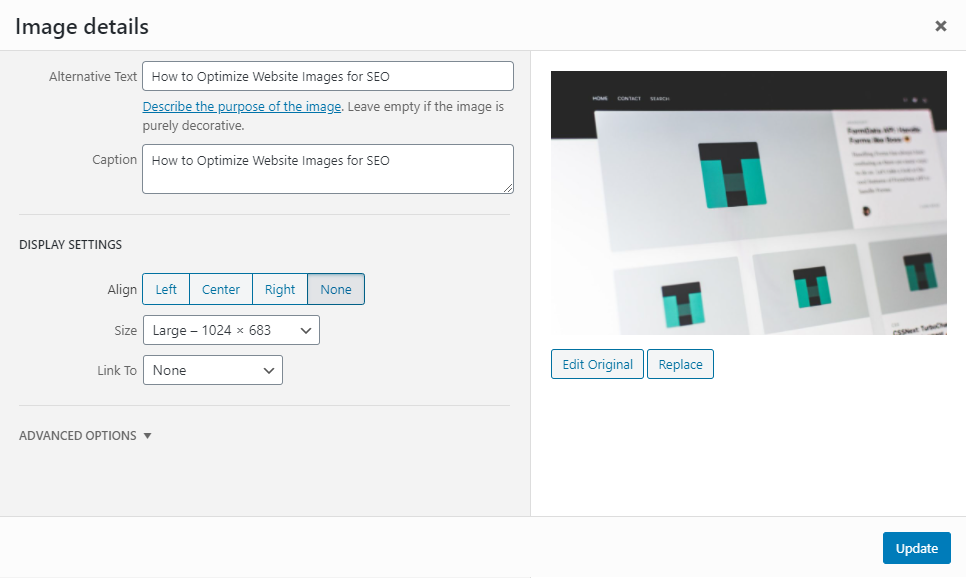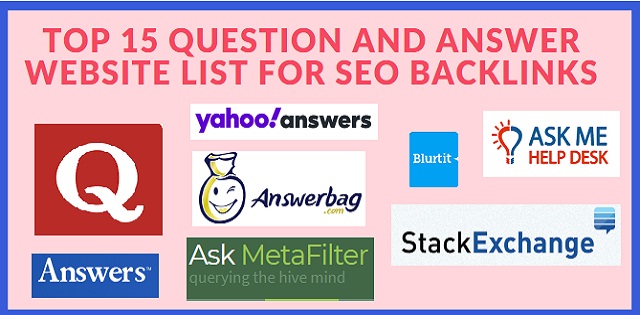60+ Top SEO Interview Questions and Answers for Beginners 2023

If you have done your graduation and are still not able to get a Job in your field then there are currently big opportunities to enter into an IT company.
If you want to enter into the IT field then SEO (also known as Search Engine Optimization) niche is the best option to choose.
In SEO, there is no requirement for technical qualification. Arts and commerce background students did a great job in the SEO field and now they are working with top organizations.
SEO is a part of Digital Marketing, which is a combination of SEO, SMO, PPC, Email Marketing, and Affiliate Marketing.
Majorly, SEO is divided into two parts – On-Page SEO and Off-Page SEO.
Here, I am sharing some SEO interview questions for beginners (freshers) to 4 years of experience candidates.
If you go through these questions before your interview then I bet you will be highly confident in your interview and nowadays interviewer 80% checks your confidence.
Top SEO Interview Questions and Answers
Let’s discuss the top SEO interview questions and answers mostly asked by interviewers.
Q1. What is SEO?
A1. SEO stands for Search Engine Optimization is the process to improve the traffic on your website through organic search results.
In layman’s language Keyword ranking improvement in search engines is counted from SEO work.
Q2. What are the Types of SEO?
A2. Basically, SEO is divided into two parts – On-Page SEO and Off-Page SEO, many of us also understand it as Link Building, but it is much more than that.
Q3. What is a Search Engine?
A3. Search engines allow the user to get relevant information from their research keywords or queries. Top search engines are Google, Yahoo, Bing, Baidu, Yandex, DuckduckGo, ASK, and AOL
Google explains the Search Engine definition as below,
“a program that searches for and identifies items in a database that correspond to keywords or characters specified by the user, used especially for finding particular sites on the World Wide Web.”

Q4. What are the Top Search Engines?
A4. The top search engines are Google, Yahoo, Bing, Baidu, Yandex, and DuckduckGo. YouTube is also counted Search Engine for Videos.
Q5. Name the Founder(s) of Google?
A5. Larry Page and Sergey Brin founded Google in 1998 while they were doing their Ph.D. at Stanford University, California.
Q6. What is the full form of “www” in the URL structure?
A6. The www stands for World Wide Web, which is a prefix of a URL.
Q7. What are Spiders, Robots, and Crawlers?
A7. All three are having the same meaning, they visit/crawl web pages to collect information for search engines.
Q8. From where You would Update yourself for Creating an SEO Strategy?
A8. I regularly read SEO news on Google authority sites and top webmaster sites. Some of the SEO Blogs are – Google Webmaster Central, Search Engine Land, SEO Round Table, Search Engine Journal, Moz, and Entrepreneur.
Q9. What do you mean by Cloaking?
A9. In cloaking, different content will be shown to the Search Engine and User for the same page.
Q10. What is the length of the Title Tag?
A10. The title length should be 600 pixels/ 65 characters.
Q11. What is the preferred Meta Description length?
A11. The preferred Meta Description length is 1200 pixels/165 characters.
Read more about Title and Meta Description optimization for SEO here.
Q12. What is Sandbox?
A12. It believes that Google has a filter where it placed all new websites under restriction.
Q13. What is Black Hat SEO?
A13. Violation of Google SEO guidelines usually counted as Black Hat SEO.
Q14. What are the famous Black Hat SEO techniques?
A14. Hidden text implementation on a single page, Link Farming, Gateway or Doorway Page, Cloaking, and keyword stuffing counted as various Black Hat SEO Techniques.
Q15. What is TLD (Top Level Domain)?
A15. The last segment of the domain is called TLD. Most commonly .com is treated as TLD. Other country-specific TLDs are .fr, .co.uk. Organization sites use .org and Government sites use .gov.
Q16. What is SERP?
A16. SERP stands for Search Engine Result Page.
Q17. What is a PAID Search Engine Result?
A17. PPC results in Google searches are called paid search engine results.
Q18. What are Heading Tags?
A18. Heading tag hierarchy from H1 tag to H6. H1 is the main heading of the page and H6 is the last (top-down) heading on any webpage. Every page should have an H1 heading tag because it counts in Google ranking factors.
Q19. What is an ALT tag?
A19. An ALT tag is also known as an Alternate Tag. Generally, used to display it as an alternate text when the source image is not available. It is used to convey the message to the user or search engine about an image if an image has a loading issue.

Read more about Image Optimization for SEO here.
Q20. What is the Full Form of the URL?
A20. URL stands for Uniform Resource Locator.
Q21. What is the Meta Description tag?
A21. A meta description is an HTML tag. There should be a 165-character limit for the Meta Description tag.
Q22. What are Backlinks?
A22. The links a website got from other websites are called backlinks for the site.
Q23. What are Dofollow Links?
A23. This is a default standard hyperlink. Google passes authority (link juice) to the dofollow links from one domain to another. The HTML is the same as a standard hyperlink: this is a do-follow link
Q24. What are Nofollow links?
A24. “Nofollow” provides a way for webmasters to tell search engines “Don’t follow links on this page” or “Don’t follow this specific link.”
Q25. What is the difference between Dofollow and Nofollow links?
A.25 Link juice is not passed in Nofollow links and also there is not any (or very less) impact on Google Ranking Algorithm. Dofollow link passes link juice and has a significant impact on Google Ranking Algorithm. However, it is not straight forward as it seems, there are other factors i.e. Domain Authority, and Page Authority matters.
Q26. What is LSI (Latent Semantic Indexing)?
A26. LSI is also known as Latent Semantic Indexing. It is counted as related searches for a word in a similar context. For Example – if you search “Shoes” then related searches like “sports shoes”, “leather shoes” and “running shoes” will show in the search results.
Q27. What is the meaning of Competitor Analysis?
A27. Competitor analysis is the study of all the positive SEO work of the top competitors like their keywords, page load time, content, backlinks, and more.
Q28. What is 301 Redirect?
A28. 301 redirect is a permanent redirect method from one URL to another URL.
Q29. What is the robots.txt file?
A29. Robots.txt file is uploaded to the root folder of the website/domain and when the crawler index the site, it primarily checks the robots.txt file for instructions.
Learn more about How to Optimize Robots.txt File for SEO here.
Q30. What are the top Google Search Algorithm Updates?
A30. Well, Google updates its search algorithm quite frequently and usually does not officially announce the frequent fine-tuning. However, there are a few major Google Search Algorithm Updates, as follows.
- December 2020 Core Update (December 3, 2020)
- Indexing Bug Update (September 29 & October 12, 2020)
- Google Glitch Update (August 10, 2020)
- May 2020 Core Update (May 4, 2020)
- Featured Snippet De-duping (January 22, 2020)
- January 2020 Core Update (January 13, 2020)
- BERT (Bidirectional Encoder Representations from Transformers) Update (October 25, 2019)
- Broad Core Algorithm Update (September 24, 2019)
- June 2019 Core Update & Site Diversity Update (Launch date: June 3–8, 2019)
- March 2019 Core Update (Launch date: March 12, 2019)
- Fred (Launch date: March 8, 2017)
- Possum (Launch date: September 1, 2016)
- RankBrain (Announcement date: October 26, 2015)
- Mobile-Friendly Update (Launch date: April 21, 2015)
- Pigeon (Launch date: July 24, 2014)
- Hummingbird (Launch date: August 22, 2013)
- Penguin (Launch date: April 24, 2012)
- Panda (Launch date: February 24, 2011)
Q31. List of Social Media Platforms used for SEO?
A31. There are a number of social media websites used for social sharing but below are the top sites which really affect SEO performance.
- Quora
- Mix
- VK, etc.
Q32. What are the Most Important Webpage sections to use your Targeting Keywords?
A32. In order to optimize the webpage as for the focused / targeting keywords, one should ensure the inclusion of keywords in the following sections…
- Meta Title
- Meta Description
- Heading Tag
- URL
- Content
- Alt Tag
Learn the Proven Ways to Target Keywords in a Post for SEO here.
Q33. What does the 301 Server Response Code signify?
A33. Moved Permanently.
Q34. If you enter ‘Help site:bloggingorbit.com’ in the Google search box, what will Google search for?
A34. It will only look for pages of bloggingorbit.com for the “help” keyword.
Q35. Are RSS/Atom feeds returned in Google’s search results?
A35. No.
Q36. What does the term Keyword Prominence refer to?
A36. It refers to the fact that the keywords placed in important parts of a webpage are given priority by the search engines.
Q37. What is the term for Optimization strategies that are in an unknown area of reputability/validity?
A37. Grey/Black hat techniques.
Q38. What does the 302 Server Response Code signify?
A38. The page has temporarily moved.
Q39. Which of the following statements about FFA pages are true?
Answer – FFA stands for Free for All links, they are also called link farms. FFA are basically webpages that allow anyone to submit his/her website’s URL on their website for absolutely free of cost.
Q40. What is Keyword Density?
A40. It is the percentage density of a particular phrase or keyword available on a webpage compared to the total number of words on that particular page.
The formula to calculate the Keyword Density is = No. of Times Keyword Appears/Total Numbers of Words x 100.
Q41. What is Google’s E-A-T?
A41. E-A-T stands for Expertise, Authoritativeness, and Trustworthiness. It is a set of quality guidelines that Google uses to evaluate the content on websites. Websites that demonstrate high levels of expertise, authoritativeness, and trustworthiness are more likely to rank higher in Google’s search results.
Q42. What is the difference between on-page and off-page optimization?
A42. On-page optimization refers to the process of optimizing the content and HTML source code of a web page. It includes factors such as title tags, meta descriptions, header tags, and keyword usage. Off-page optimization, on the other hand, refers to the process of building links and social signals to a website to improve its authority and visibility in search engine results pages.
Q43. What are the benefits of using long-tail keywords?
A43. Long-tail keywords are longer, more specific phrases that users are more likely to use when they are closer to making a purchase or performing a specific action. The benefits of using long-tail keywords include less competition, higher conversion rates, and better targeting of specific user intent.
Q44. What is a backlink?
A4. A backlink is a hyperlink from one website to another. Backlinks are important for SEO because they can signal to search engines that a website is reputable and relevant.
Q45. What is the difference between follow and nofollow links?
A45. Follow links are hyperlinks that search engines follow when crawling a website, whereas nofollow links are hyperlinks that search engines do not follow. Nofollow links do not pass any link juice or authority to the linked website.
Q46. What is a 301 redirect?
A46. A 301 redirect is a permanent redirect from one URL to another. It is used to redirect users and search engines from an old or outdated URL to a new one, without losing any link equity or authority.
Q47. What is anchor text?
A47. Anchor text is clickable text in a hyperlink. It is important for SEO because it can indicate to search engines the topic or context of the linked page.
Q48. What is a sitemap?
A48. A sitemap is a file that contains a list of all the pages on a website. It is used to help search engines crawl and index a website more effectively.
Q49. What is duplicate content?
A49. Duplicate content is content that appears on more than one URL. It can be a problem for SEO because search engines may have difficulty determining which version of the content is the original or authoritative source.
Q50. What is keyword density?
A50. Keyword density refers to the number of times a target keyword appears on a web page, expressed as a percentage of the total number of words on the page. While it was once considered an important factor for SEO, keyword density is now less important than creating high-quality, relevant content.
Q51. What is a meta description?
A51. A meta description is a brief summary of the content of a web page. It appears in the search engine results pages beneath the title tag and URL and can be used to entice users to click through to a website.
Q52. What is a robots.txt file?
A52. A robots.txt file is a text file that tells search engine crawlers which pages or sections of a website should not be crawled or indexed. It is used to prevent search engines from indexing sensitive or irrelevant content, such as login pages, duplicate content, or certain types of media files.
Q53. What is local SEO?
A53. Local SEO is the process of optimizing a website to rank in local search results, such as Google Maps or other location-based searches. Local SEO is important for businesses that rely on local customers or have physical storefronts.
Q54. What are Google Webmaster Tools?
A54. Google Webmaster Tools (now called Google Search Console) is a free tool provided by Google that allows website owners to monitor and analyze their website’s performance in Google search results. It provides information on search queries, backlinks, crawl errors, and more.
Q55. What is a site audit?
A55. A site audit is a process of evaluating a website’s technical and on-page SEO factors to identify issues that may be affecting its search engine rankings. A site audit can identify issues such as broken links, duplicate content, missing meta tags, and other technical SEO issues.
Q56. What is schema markup?
A56. Schema markup is a type of structured data that is added to the HTML of a web page to help search engines understand the content on the page. Schema markup can be used to provide additional context to search engines about specific types of content, such as articles, events, and product listings.
Q57. What is a featured snippet?
A57. A featured snippet is a block of content that appears at the top of the search engine results page, above the traditional organic search results. Featured snippets are designed to provide users with a quick answer to a search query, and can be a powerful way to drive traffic to a website.
Q58. What is a crawl budget?
A58. A crawl budget is the number of pages that a search engine crawler is able to crawl and index on a website within a given time period. It is affected by factors such as the size of the website, the server’s speed and capacity, and the crawl rate limit set by the search engine.
Q59. What is domain authority?
A59. Domain authority is a metric developed by Moz that measures the strength and authority of a website’s domain name. Domain authority is based on factors such as the number and quality of backlinks, the age and history of the domain, and the relevance and authority of the website’s content.
Q60. What is a content audit?
A60. A content audit is a process of evaluating and analyzing all of the content on a website to identify areas for improvement. It involves analyzing factors such as content quality, relevance, engagement, and SEO effectiveness and can help website owners identify opportunities to improve their content strategy and search engine rankings.
Did you find this post on the top SEO interview questions and answers useful?
Do you have any other questions in your mind? or You might have a better explanation of any SEO interview questions mentioned above.
Do share your thoughts in the comments below, I would be happy to discuss them.






